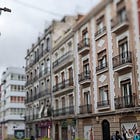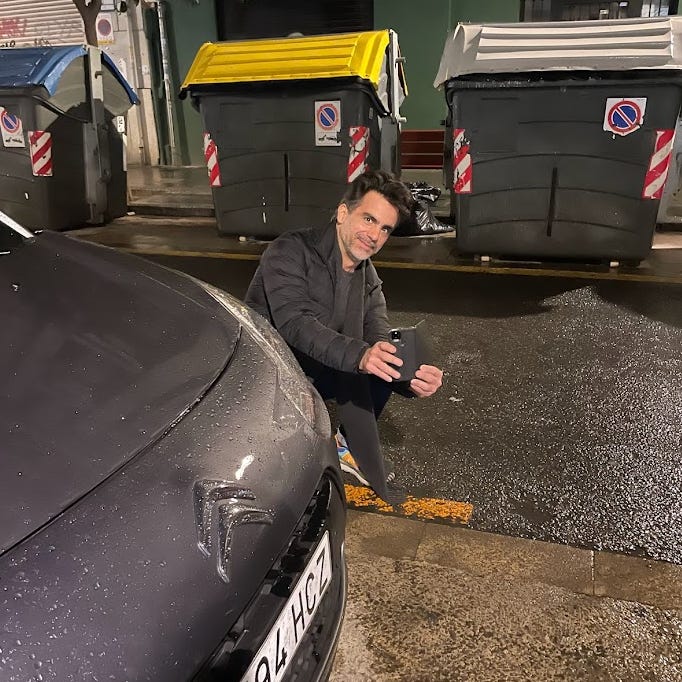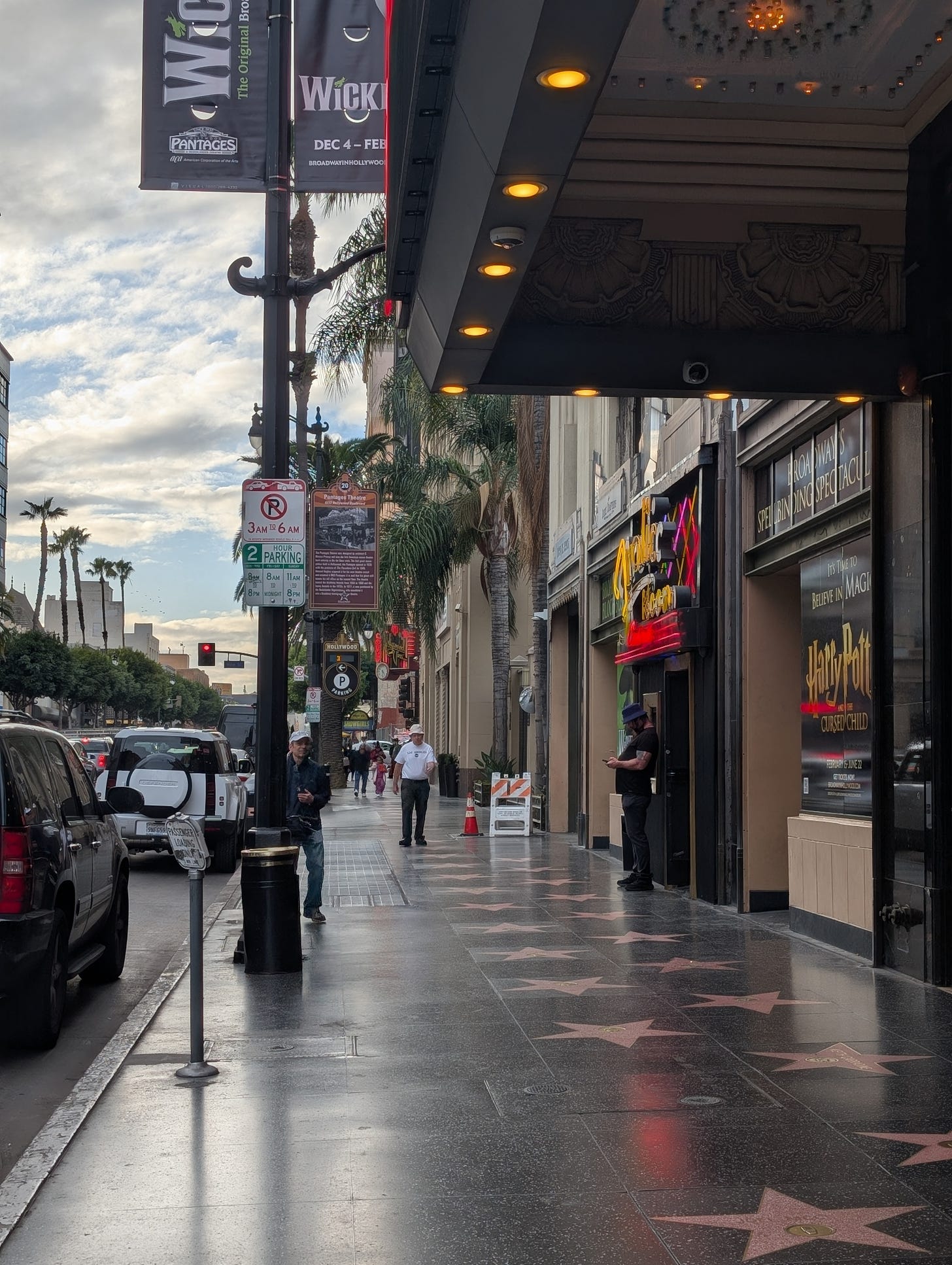The other day, I discussed Spain’s economy as a prelude to a conversation about our upcoming apartment hunt in Valencia.
We leave for Spain in two weeks—
On January 2, we fly to Barcelona.
We will spend most of the long weekend there.
On January 6, we take the train to Valencia.
On January 7, we apply for our residence permit.
We wait. Upon approval, we will open bank accounts and find an apartment.
Then, we will conduct several other bureaucratic and administrative tasks.
Of course, I’ll detail them all as they happen. At the same time as doing my creative damnedest to bring to life my experience of living life—on the ground—in Spain.
The day to day. The seemingly mundane. The euphoria. The excitement. The struggles. The challenges. Assessments of what we thought it was going to be like compared to what it’s really like.
All while keeping it real, raw and personal.
I consider the opportunity to make this move a privilege. Which—as I consider it—ties directly to discussions about broad economies, economic growth (or lack thereof) and economic opportunity (or lack thereof).
As an American, you sometimes find yourself apologizing for your place in the world. And your ability to place yourself in other people’s worlds.
I’m sure this isn’t distinctly American. I assume that if you’re—in some way, shape or form—a so-called have in your economy, you might find yourself in a similar position. I can only speak from my American perspective.
Which is what today’s installment is about—my American perspective on being a have, what exactly is a have anyway and why it matters/what it means within the context of moving to a country that offers a lifestyle I prefer at a cost I can afford.
A necessary discussion when we—this “we” being most of us—exercise our privilege to not only do things other people can’t do, but things that other people are (for one reason or another) unwilling or incapable of doing.
The other day, I wrote an article for
’s Medium publication—The Riff.This closing line made me emotional.
And, in at least one case, that party led a 13-year-old to his first job and a life he never could have imagined if it wasn’t for Top 40 radio.
The party I refer to is nighttime Top 40 radio. It was a big deal when I was a preteen. And it’s absolutely what led to me getting my first job in radio. At age 13, a whole 37 years ago.
I have done a lot of cool shit in the last 37 years. It started with radio and—now, suddenly—here I am staring 50 in the face and I’m moving to Spain. Not so much the passing of time, but the chain of events triggers emotion.
I am a have. And I always have been a have. My early opportunity and trajectory over the last 37 years makes this clear. However, I don’t consider being a have something all that extravagant or otherwise impressive. I view it as little more than a life well-lived.
I have had the life of a have because of many things: Luck of the draw on birthplace, resources, ability, savvy, smarts, drive.
None of this feels all that crazy to me. It doesn’t make me feel special. I’m in good and ample company.
However, this broad conversation comes down to perspective. Which really takes center stage on this point. Your perspective.
You might consider Elon Musk and other wealthy people the haves and the rest of us the have nots. I don’t look at it like this. Yes, there’s absurd inequality between the world’s wealthiest and the rest of us, but inequality happens to varying degrees.
Some people spend their lives actually fighting extreme inequality. I respect that. A few comfortably sit behind keyboards and rail against it. Most of us make the inherently shitty decision to just live and occasionally glance at injustice at the same time as we do our best to be mindful of others and the world around us.
In many ways, this is what keeps our capitalist systems humming right along. Few people like to say it out loud, but it’s simply impossible for the majority of us to do anything of substance for the true have nots in society.
So—in what ends up being human nature, if not the logical choice—most of us simply go about our own lives (hopefully amid the aforementioned mindfulness) and attempt to do the best we can for ourselves and, if/when applicable, our families.
Sometimes our best isn’t good enough, but these shortcomings, missteps and outright failures don’t make us losers. And they definitely don’t make us have nots.
This is part of the problem with the way some people view have nots. When something doesn’t go your way, you can outsource the reason to systemic economic inequality. Just another case of the rich getting richer and the poor getting poorer.
This type of response starts on shaky ground.
That somehow the comparison case to the average “Joe” in our capitalist societies should be the people getting rich off of the stock market (which is where, for example, practically all of Elon Musk’s wealth comes from) and other areas of “business.”
Or—taking it down a notch—looking at the people who have achieved the American dream (too large of a suburban home, too many luxury cars, all of the trappings) and saying we have failed because we don’t have what they have. Or—maybe worse—trying to keep up with these people in what ends up a never-ending roundtrip ticket on the hamster wheel known as the runaway American dream.
If you’re not living the American dream—whatever the fuck that is anyway (my quick characterization of it notwithstanding)—this doesn’t make you have a have not. In fact, I argue we only have two broad categories of true have nots in society. Both—no doubt—the product of an oppressive and unfair system.
People who cannot meet their basic needs, such as food and housing.
People who struggle to barely get by and face racial and other forms of discrimination that stack the cards against them at least twice.
The rest of us have what we have and the possibilities that emerge from what we’re able to create right in front of us. Among the haves—clearly—some have more than others. You can debate if this is fair and just—(it probably isn’t)—but you’ll end up chasing your tail, which is tantamount to standing still.
Taken together, this is less a pull yourself up by your bootstraps argument—(something that sounds great to so-called American patriots, but is as unrealistic as it is misguided)—and more a work with what you got and don’t be so arrogantly bold to strive for and take more than you need proposition.
Ultimately, we have no reason—no excuse—to do anything other than go for it with our specific circumstances, constraints and confines, which tend to expand and contract at different points in time.
No excuse.
Not the existence of actual have nots. Not the presence of different classes of haves. I’ve got news for you. If you refuse to seize your opportunity, you’re not going to make life any better for those who suffer. If you take a 4-minute shower instead of 5-minute shower, you’re not “saving” water. If you refuse to get on an airplane for a long haul flight, you’re not fighting climate change.
Humanity—and the good, bad and unintended consequences of its collective actions—marches on with us or without us. As individuals, we can overstate our impact. It’s narcissistic in a way. The idea that if I do it and you do it, a whole bunch of other people are going to do it and—together—we’re going to change the world.
Sadly, the world’s problems are bigger than your friend group and reach on social media.
Call me jaded. Call me cynical. Call me a dick. I like to call it realistic with a healthy dose of clearheadedness. We have limited time on Earth. We have to use it wisely.
This tension between conceptions of the haves and have nots springs the haters. The people who—for one reason or another—aren’t doing things.
They’re not doers for a variety of reasons. Fear. Family ties. Upbringing. Lack of knowledge of the possibilities. Lack of experience with what’s possible. They’re the haves who relish in the misery of thinking of themselves as have nots and branding the things you’re doing somehow wrong or otherwise bad for society.
It’s a wonderful defense mechanism that will hold you back from doing things. From leading and leaving behind a life well-lived.
I wrote this installment for three reasons:
Lots of things hold lots of people back. And for no good reason other than fear. Fear of the unknown. Fear of uncertainty. And—worse—fear of what others will think or say in response. What will my parents or kids think if I decide to …? It’s these flavors of fear that the doers overcome to do cool shit.
When you decide to do things, you’ll run into more than your share of passive-aggressive (and not-so-passive aggressive) haters. Don’t let them.
As Bob Dylan said—
While one who sings with his tongue on fire
Gargles in the rat race choir
Bent out of shape from society’s pliers
Cares not to come up any higher
But rather get you down in the hole
That he’s in
This installment was partially inspired by conversations I have been having with my Spanish instructor, who is from Catalonia. He’s a hell of a guy who feels like a friend as much as a teacher. He’s also an impressive guy who has spent the better part of the last several years traveling the world.
Something happens—something cool that I can’t quite put my finger on—when you have three-hour conversations in a language you struggle to understand and can barely speak with somebody from a different culture.
At the same time as learning from your differences, you realize that you also share quite a few meaningful similarities. With respect to outlook on life and the desire to live the life you wanna live now the best way that you can.
Even with the language barrier, you start to understand one another.
Part of the goal of making this move to another country is to continue to learn about and challenge myself, particularly at a point in life when it’s easy to stand still. To stagnate.
As this happens, I try to think critically about what we’re doing, why we’re doing it and how it can be perceived. No matter what any of us choose to do in life, someone somewhere will find something wrong with it. Or a reason to hate on it. To dilute and dispute what you’re doing.
As with economic inequality, there’s little you can do with this systemic flaw of the human social condition. All you can do is know yourself, seize the opportunities you have been lucky enough to be born with and/or create, double check your motivations, check your ego at the door and proceed with a mindful and cautious optimism.
Hollywood Boulevard, looking west past the Frolic Room







Had me smiling.
We are trying to semi-retire. We are definitely in the haves / the one-percent etc.
Our financial planning has shown we definitely have enough for a very good standard of living. We are going to spend about 8 months of the year in South Africa; a lot of poverty and unemployment there. To Rocco’s point: we cannot solve it. We can though be good guests and spend some money.
“I have done a lot of cool shit in the last 37 years.”
You sure have! Thanks for shouting out The Riff as well.
For anyone scrolling the comments: I might be biased, but the article Rocco wrote for The Riff is well worth your time.